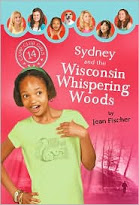virtual reality –noun
a realistic simulation of an environment including three-dimensional graphics . . .
As a fiction writer it’s your job to create virtual reality, to design a setting that makes readers think in three-dimensional pictures. If you’re good at set design, your readers’ imaginations will interact with the environment you create.
Try these tips for setting the scene.
 1. Create a setting to influence action. What elements in your scene will trigger your characters to react?
1. Create a setting to influence action. What elements in your scene will trigger your characters to react?
2. Use setting to create conflict. Think about contrast and opposition. An example from real-life: It’s a balmy, sunny morning on Khao Lak Beach, Thailand. A young couple sip their morning tea and make plans for the day when suddenly they are swallowed by a giant tidal wave 100-feet high. Do you see the contrast? A beautiful day turns ugly. The ordinary becomes extraordinary.
3. Allow your characters' senses to help describe the setting. What do they see, smell, hear, feel and taste?
4. Think about your story's social setting. Imagine you’re directing a movie scene. Along with your main characters you have “extras,” people surrounding the central action. Look around your virtual environment at what these extras are doing. How do they affect the setting?
5. Use natural surroundings like weather, light and color to help set the mood.
6. Avoid obvious and overused settings like modern-day Paris, New York and Los Angeles. Your story will be more interesting if set in a not-so-familiar time and place. Take readers someplace fresh.
7. Search your surroundings for realistic settings. The perfect setting for your story might be in your own back yard: a boarded up house gutted by a fire, a carnival making a brief stop in your community, a cupcake bakery on the outskirts of town.
8. Set your story in an unlikely place, a love story in a lighthouse, a comedy in a graveyard, a ghost story in a circus tent.
9. Research, research, research. Make your setting believable. If your story is set in a real time and place, it has to be true to the actual setting. When I wrote Sydney's Outer Banks Blast, a Camp Club Girls mystery set in the Outer Banks of North Carolina, I relied on photographs, maps, travel guides and tourists' reviews. Don’t guess. Do the research.
10. Show, don’t tell. A sentence like The wind was blowing is boring. Show how the wind interacts with your setting. The wind tossed the small boats as if they were made of paper.
A great setting is evocative, well researched and skillfully described. If done well, it immediately captures readers’ interest and holds it through the entire story – and that’s the primary goal of good fiction.
 1. Make A List. Check It Twice.
1. Make A List. Check It Twice.
 2. Throw On A Disguise
2. Throw On A Disguise










































